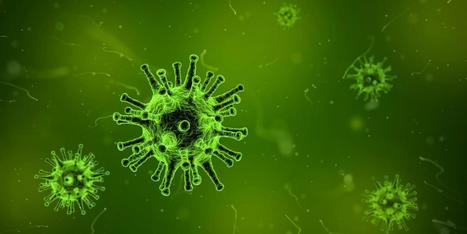A study of Nicaraguan children links prior Zika virus infection with aggravated dengue fever symptoms. The 2015–16 Zika virus epidemic that spread through Central and South America was followed last year by a surge in dengue virus cases. While this unfortunate series of diseases battered the region’s populace, it gave scientists, who had been following a cohort of several thousand children in the area, the opportunity to study how these two flaviviruses might jointly affect the immune system. That research has revealed that kids infected with dengue virus are more likely to suffer worse symptoms if they had previously been infected with Zika than if they hadn’t. The findings, reported in Science today (August 27), indicate that antibody-dependent enhancement—a phenomenon known for making a second infection with a virus worse than the first—is not limited to influencing infections by the same pathogen. This raises concerns that such cross-species effects may occur for other types of viruses—including coronaviruses—and may impact vaccine safety, scientists say.
“It’s a pretty amazing story. [It] addresses what I think is the most important question in the field that has emerged following the Zika virus outbreak, and that is, how do Zika virus and dengue virus influence each other?” says virologist Jean Lim of the Icahn School of Medicine at Mount Sinai who was not part of the research team. Dengue and Zika viruses are closely related members of the flavivirus genus and are both transmitted to humans via the bites of infected mosquitoes. Dengue virus infection can be asymptomatic or can cause symptoms such as fever, headache, muscle aches, and rash. In some cases the disease can be severe, causing hemorrhagic fever and even shock (a dangerous drop in blood pressure). Zika virus causes a mostly mild disease—characterized by fever, rash, and joint pain—that resolves within a week, but in adults it can occasionally cause Guillain-Barré syndrome, an autoimmune condition affecting the peripheral nerves, and in pregnant women, the virus can lead to brain defects in the developing fetus including microcephaly.
There are four strains, or serotypes, of dengue virus and infection by one type has a curious effect on infection by another, explains epidemiologist Isabel Rodriguez-Barraquer of the University of California (UC), San Francisco, who also did not work on the project. While an infection with the same serotype twice will not cause disease the second time around, if a different serotype causes the second infection, the existing antibodies fail to neutralize the virus and actually assist its entry into host cells. “The antibodies that your body builds after that first infection make the second infection worse and that’s often referred to as antibody-dependent enhancement,” Rodriquez-Barraquer says. This phenomenon is also thought to explain the worsening of disease severity seen after dengue vaccination. Because Zika is closely related to dengue, “when Zika came along there was a question [of whether] there was going to be some sort of immunological interaction,” says UC Berkeley’s Eva Harris. And her group was in a perfect position to provide an answer, she adds, thanks to a long-standing collaboration with scientists in Nicaragua who have been monitoring infections, measuring antibody titers, and collecting other data from a rolling cohort of children since 2004.
In an earlier study, Harris’s group had shown that dengue infections preceding the Zika outbreak that started in 2015 offered a slightly protective effect against Zika severity, at least in children. Then, in 2019, when a major epidemic of dengue infections blew through the region—the worst in Nicaragua’s history—the group looked at the reverse scenario: whether prior Zika infection influenced dengue severity. A total of 302 children of a cohort of 3,434 were diagnosed with symptomatic dengue fever between 2019 and 2020, confirmed via PCR amplification of the virus’s genetic material. By analyzing the infection history of the cohort, the team then calculated that children who had had a prior Zika infection had a roughly 12 percent chance of developing symptomatic dengue, compared with an only a 3.5 percent chance for children that had had no prior flavivirus exposure. Children who had had one prior dengue infection had a roughly 9 percent chance of later symptomatic disease. Prior Zika or dengue infection also increased the risk that a child would experience the most severe symptoms of dengue—hemorrhagic fever and shock—compared with children who had not previously had flavivirus disease, the team showed...
Published in Science (August 28, 2020):



 Your new post is loading...
Your new post is loading...








